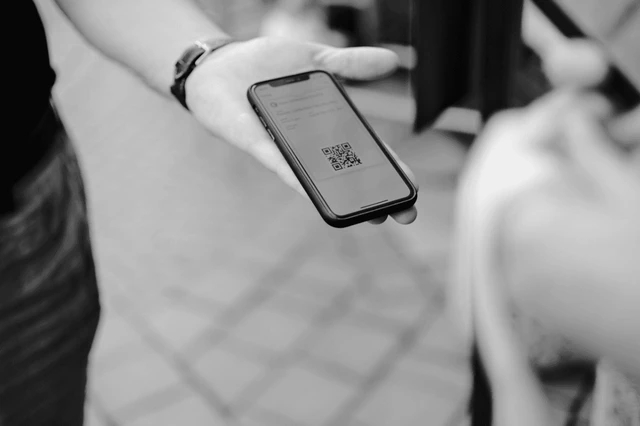The Next Frontier: 11 Emerging Trends in Onsite Event Check-In
In this blog, we explore the future of onsite event check-in, where technology, sustainability, and personalization converge. From contactless check-ins using QR codes and mobile apps to biometric security and augmented reality, these trends promise enhanced efficiency, engagement, and eco-conscious practices. Stay ahead by embracing these innovations for a seamless event experience.

In the ever-evolving landscape of event planning and management, the onsite event check-in process stands as a pivotal point where efficiency, security, and engagement converge. In this article, we will explore the exciting trends expected in onsite event check-in. These trends promise to revolutionize the way attendees experience events, combining technology, sustainability, and personalized service for a seamless and memorable event journey.
Here are the Top 11 Trends to Implement in Onsite Event Check-In
1. Contactless Guest Check-In with QR-based scanning, NFC and Mobile Apps
The COVID-19 pandemic has accelerated the adoption of contactless technologies in various industries, and the event sector is no exception. Contactless check-in methods, such as QR code scanning, NFC (Near Field Communication) technology, and mobile apps, have become increasingly prevalent. Attendees can simply scan their digital tickets or badges to check in, reducing physical contact and wait times.
2. Biometric Authentication for Advanced Security
Biometric authentication methods like facial recognition and fingerprint scanning are gaining traction in event check-in processes. These technologies offer a quick and secure way to verify an attendee's identity, making the check-in process more efficient and reducing the risk of fraud. Biometric check-in also provides a futuristic and memorable experience for attendees.
3. Predictive Queue Management during Event Check-in
One of the most frustrating aspects of onsite event check-in is waiting in long lines. Predictive queue management, powered by artificial intelligence and real-time data, optimizes check-in processes. Attendees receive notifications about the optimal times to arrive, significantly reducing wait times and ensuring a smoother entry.
4. The Rise of Self-Service Event Check-in and Badge Printing Kiosk
Self-service are gaining popularity, offering a hassle-free, time-saving experience for attendees. This trend simplifies the registration process and provides personalized badges, contributing to smoother event operations and enhancing overall attendee satisfaction.
5. Smart Badge Technology: Revolutionizing Networking and Engagement
Smart badges have evolved from mere identification tools to become powerful networking and engagement devices. These innovative badges are now capable of storing attendee information and providing features such as contactless payments, session check-ins, and even real-time language translation. They are set to revolutionize the event experience by enabling attendees to effortlessly connect, engage, and access event content.
6. The Augmented Reality Revolution
Augmented reality is reshaping how we engage with the physical world, and it's seamlessly integrating into event check-in processes. Attendees now have the opportunity to use AR-enabled apps to discover check-in points, access event information by scanning posters or signs, and even immerse themselves in captivating experiences related to their event badges.
7. Next-Gen Event Check-In: Embracing Voice Activation
Within the realm of event check-in, attendees are on the verge of experiencing an effortless check-in process. They can choose to check in by simply stating their name or presenting a voice-activated QR code. This hands-free approach not only optimizes efficiency but also plays a vital role in minimizing physical contact, thus guaranteeing a smoother and more hygienic check-in process
8. Lead Scanning: Revolutionizing Guest Engagement for Sponsors and Exhibitors
For sponsors and exhibitors, lead generation and relationship-building are crucial. Event check-in systems will incorporate lead scanning capabilities, allowing sponsors to easily collect attendee information and track potential leads. This technology facilitates post-event follow-ups and fosters lasting business relationships.
9. Session-Based Engagement Tracking
By actively measuring and leveraging attendee engagement data through session-based tracking, event organizers can fine-tune their programs to create events that are not only more successful but also more tailored to the specific interests and needs of their participants. Attendees can check in for specific sessions or workshops, providing organizers with real-time data on attendance and participation. This data can help event planners fine-tune their programs and enhance the attendee experience.
10. Real-Time Data Analytics on Check-In
Data analytics tools are becoming indispensable for event planners. Check-in systems are now providing on attendee check-in patterns, wait times, and demographics. Event organizers can use this information to make on-the-fly adjustments, ensuring a smoother check-in process and overall event success.
11. Sustainability-Focused Event Check-in
With the increasing importance of environmental sustainability, event organizers are prioritizing eco-friendly solutions. In the near future, we anticipate a surge in sustainable check-in practices, including digital-only ticketing, reduced paper waste, and the implementation of renewable energy sources to power check-in systems. These efforts align with the global commitment to a greener, more eco-conscious event industry.
Combining the Power of Trends
These trends collectively shape the future of onsite event check-in, offering enhanced efficiency, security, and sustainability, along with a more personalized and enjoyable event experience. By embracing these trends, event organizers can elevate their events, cater to the evolving needs of attendees, and deliver exceptional value to both participants and sponsors.
As we look ahead to 2024, the is set to transform the way attendees experience events. Efficiency, security, and sustainability are at the forefront, alongside personalized service and engagement. Event organizers must adapt and leverage these trends to create memorable and seamless event experiences. By doing so, they can ensure that attendees leave with lasting impressions and sponsors forge valuable connections, making every event a success in the years to come.
More Event Check-in












